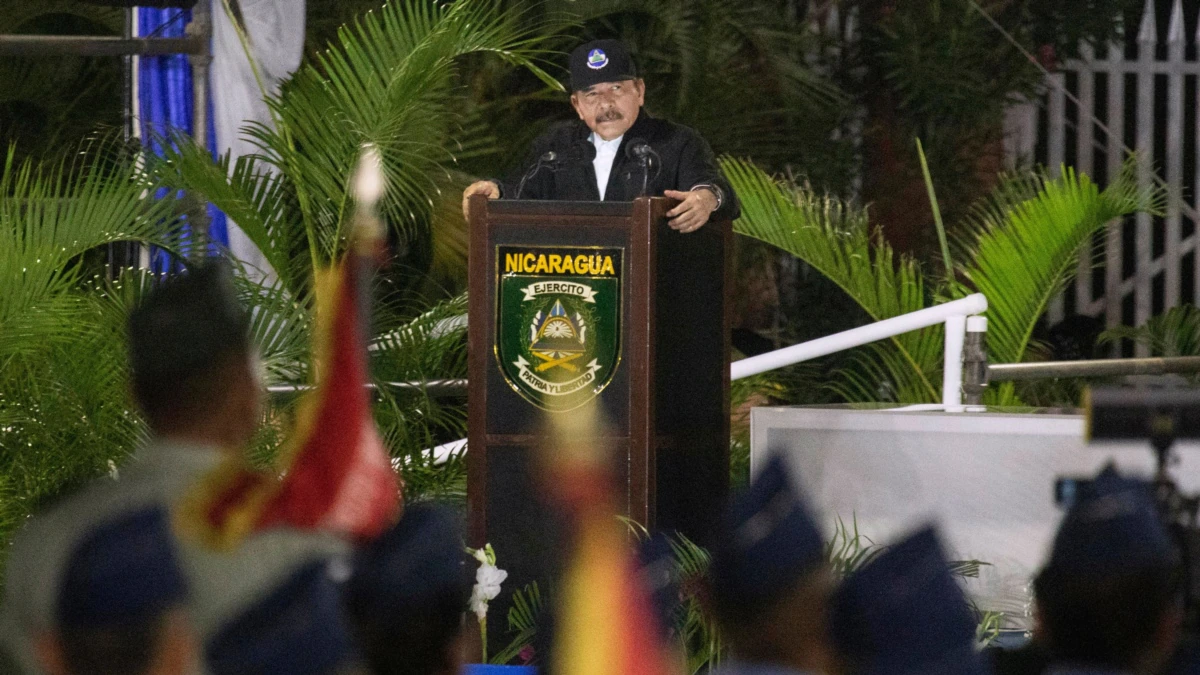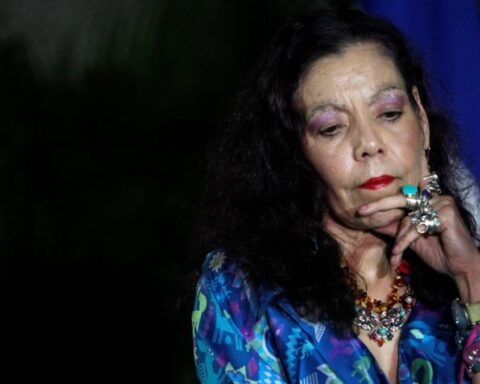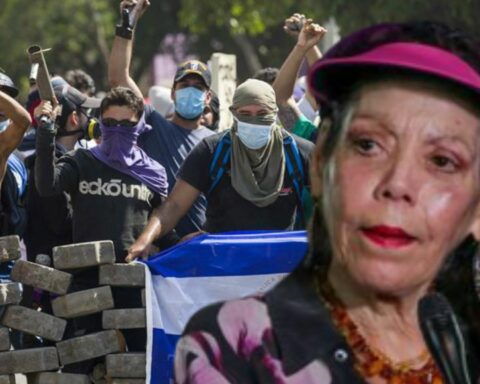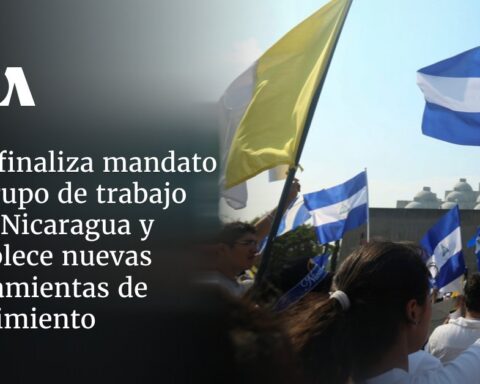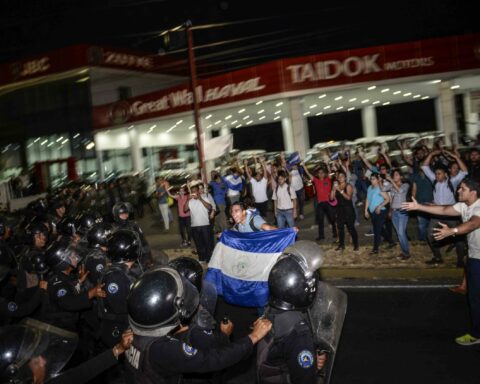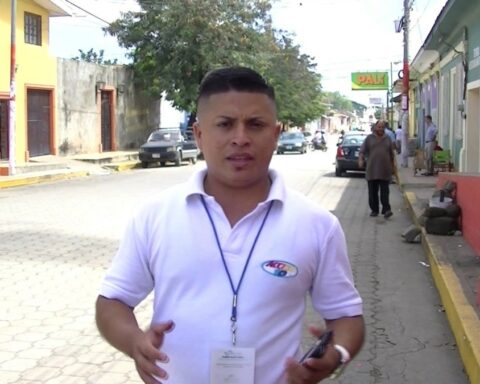Nicaraguan President Daniel Ortega continues to close the doors to dialogue and distance himself from leaders of the region and the world who seek to serve as a bridge to settle the crisis that the Central American nation is going through in terms of human rights and democracy, analysts say.
Experts consulted view with concern the fact that the left-wing president, -who began a new term in November in elections criticized in part because he previously put his opponents in jail- has recently used his rhetoric to attack political personalities who they could play a key role in solving the crisis in the impoverished nation.
Ortega’s most recent verbal attacks have targeted Pope Francis, UN Secretary General António Guterres, and Chilean President Gabriel Boric. He has also referred in a disparaging tone to Brian Nichols, deputy secretary of state for the Bureau of Western Hemisphere Affairs. “Barks against Cuba, barks against Venezuela, barks against Nicaragua,” Ortega has said of Nichols, who has urged the Nicaraguan government to release political prisoners.
Basically, Ortega criticizes those who point out flaws in his government’s performance of following the guidelines of the United States and the European Union.
“With what authority do they speak to me about democracy? How many votes did the bishop have from the population to be appointed bishop, was he appointed by the finger of the Vatican, by someone who has not been elected by the people, was he elected by a group of cardinals. That’s how they elect the pope, a group of cardinals and from there they appoint everywhere,” Ortega recently said.
Tiziano Breda, an analyst at the International Crisis Group, a Brussels-based research and analysis center, told the voice of america that we are in the presence of “a radicalization of the discourse” of Ortega.
“I don’t remember another government official who recently, at least, has launched such insane rhetoric against such a varied group of actors that is not just the United States,” the analyst said.
Breda also maintains that in Ortega’s case there is “an additional element of intransigence,” compared to leaders in the region criticized for human rights violations, such as the allied governments of Cuba and Venezuela.
The analyst believes that Ortega is trying to send a clear message to his internal supporters and to the international community: he is not willing to listen and attend to anyone’s demands and, furthermore, says Breda, “he is willing to pay the consequences.”
The political crisis in Nicaragua is becoming more acute since the anti-government protests that took place in 2018 and left more than 300 dead and tens of thousands displaced and exiled.
Ortega has since insisted that the protests were an attempted coup, while various attempts at dialogue have collapsed due to a lack of understanding and agreements between his government and opposition forces.
Ortega’s positions have put him in the sights of democratic governments in Latin America and the world. As a consequence, the United States and Europe have imposed sanctions on members of their closest circle.
What has happened with the international mediation attempts in Nicaragua?
The leftist government led by Gustavo Petro in Colombia tried to mediate an eventual dialogue with Nicaragua in order to solve the crisis and achieve the release of political prisoners, however, it was not successful.
The Vatican has also tried to seek a rapprochement with Ortega. In fact, Pope Francis said on September 15 that “there is a dialogue” with Nicaragua about its measures against the Church, which include the arrests of at least ten priests, including a bishop who remains in house arrest.
Also the United States government has shown itself on several occasions to be open to dialogue “frank and sincere” with Managua.
During a public speech on Wednesday, Ortega closed the possibility of an intervention by the Catholic Church, saying that the institution has established “a perfect dictatorship.”
“Weakness and Isolation”
Eliseo Núñez, former deputy and analyst, told the VOA that Ortega “is not currently in any disposition to seek a solution to the country’s crisis.” In fact, Núñez affirms, Ortega “does not look at (sees) crises.”
“We see that Ortega only intends to isolate himself more, close the system more,” says Núñez.
In this context, recent criticism of the UN Secretary General, António Guterres, whom he called “imperialism’s wimp”, is added.
On the government of Chilean President Gabriel Boric, Ortega has also made strong criticism. “There (in Chile) there is no democracy, there the Pinochet tyranny remains ruling in economic power, in military power, repressing workers, repressing indigenous people, repressing students,” Ortega said without offering arguments. .
Both Guterres and Boric also called for respect for human rights during the 77th United Nations General Assembly in New York this month.
Erick Olson, an expert based at the Washington-based Wilson Center think tank, believes that Ortega’s “aggressive language” is a sign “of his own weakness and isolation” as he seeks to confront criticism of his government.
“[Ortega está] quite isolated, with very few allies, and the allies that remain are also countries that are in the same condition,” he adds, referring to the governments of Cuba, Venezuela and Russia.
“I see it as an attempt to criticize an international community that has strongly rejected and criticized itself, and there are governments of the left, right and center alike,” says the Wilson Center analyst.
“This experience in Nicaragua is quite unique, what is happening now,” says Olson. “This position by Ortega is quite unusual.”
“Calculation of poverty”: alliance with Russia and China
According to Núñez’s analysis, Ortega “is calculating poverty” when he bets on strengthening relations with the governments of China and Russia.
“These countries do not have the commercial capacity that the United States has,” says Núñez, who foresees that the level of consumption of the Chinese would be much lower in the event that Ortega bets on a free trade agreement with China, and disdains the one that It has been in force with the United States since 2006.
“Ortega does not seem to understand this, or does not seem to care, either of the two things is very bad for Nicaraguans. They are sectoral impacts, but they are important impacts. He is making bad calculations,” says Núñez.
“Ortega simply wants to stay in power as long as he can,” he adds.
Olson, for his part, assures that the main impact of Ortega’s isolation “is going to be felt by the Nicaraguan people (…) I think we will continue to see more and more Nicaraguan people fleeing their country because they do not see life options there,” the analyst concluded.
Connect with the Voice of America! Subscribe to our channel Youtube and turn on notifications, or follow us on social media: Facebook, Twitter and Instagram

